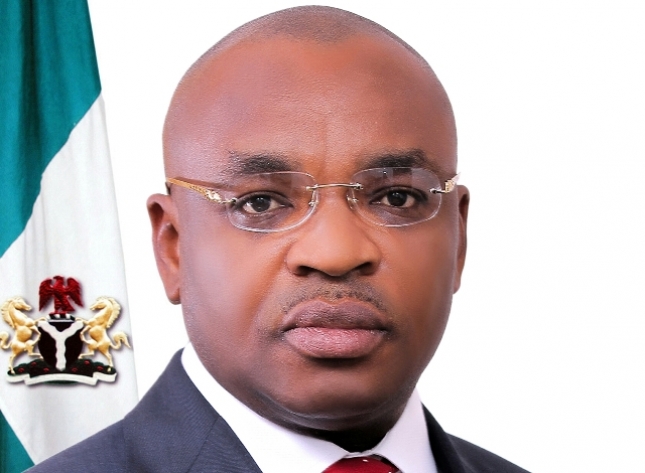The Akwa Ibom State government has made it clear it will not release a white paper on its inquiry on the church collapse that killed 27 people and injured 37 in 2016.
The Reigners Bible Church, Uyo, which was under construction, caved in during a ceremony to consecrate the church founder, Akan Weeks, as a bishop.
The Akwa Ibom Governor, Udom Emmanuel, who was a special guest at the ceremony, narrowly escaped unhurt.
Seven months after the commission of inquiry, headed by a retired judge, Umoekoyo Essang, submitted its report, the state government said on Wednesday in a statement that, “The Attorney General and Commissioner for Justice has been mandated to commence the process of taking appropriate actions against all persons found culpable in the church building collapse.”
The statement, issued by the Commissioner for Information, Charles Udoh, added that “All cases of proven professional negligence will be dealt with decisively within the ambit of the law.”
The statement took many people by surprise because of the expectation that the report was going to be made public soon.
Those who spoke expressed anger against the government’s decision not to release a white paper on the commission’s report.
“The statement by the commissioner is pointless,” said Inibehe Effiong, a human rights lawyer, who has been campaigning for the release of the report.
“It does not resolve the questions which the people of the state have been asking on the outcome of the investigation by the commission of inquiry.
“The procedure is that when government constitute a judicial commission of inquiry, upon the conclusion of the assignment, it is expected that a white paper be issued by the government wherein the government would state the recommendations that it accepts and those that it rejects, and a clear statement on actions that would be taken in respect of the recommendations,” Mr. Effiong said.
Mr. Effiong accused the government of having a hidden interest in the report.
“The government has an interest in that report which it does not want to come out openly to say.
“If the government is interested in the truth, why not release the report. In fact, given the scale of the tragedy that took place, what stops the government from publishing the report on the internet. I am not even talking about the white paper, I mean the report itself.
“I am saddened that the government has not deemed it fit to, at least, honour the souls of those who lost their lives,” said the lawyer, who hinted that he may sue the government on the matter.
Victor Iyanam, a lawyer and a former commissioner for justice in the state, said if the government knew that they were not going to release a white paper on the commission’s report, they should have simply used the police to investigate, arrest and prosecute those culpable.
“Let us know those who have been indicted by the commission,” Mr. Iyanam said. “That is the transparent thing to do.
“Let the government not give the impression that the whole essence of setting up the judicial commission of inquiry was to sweep things under the carpet.”

